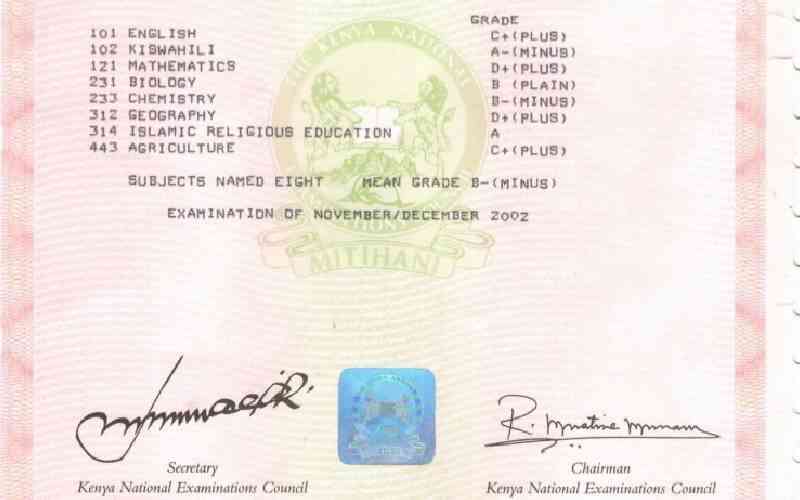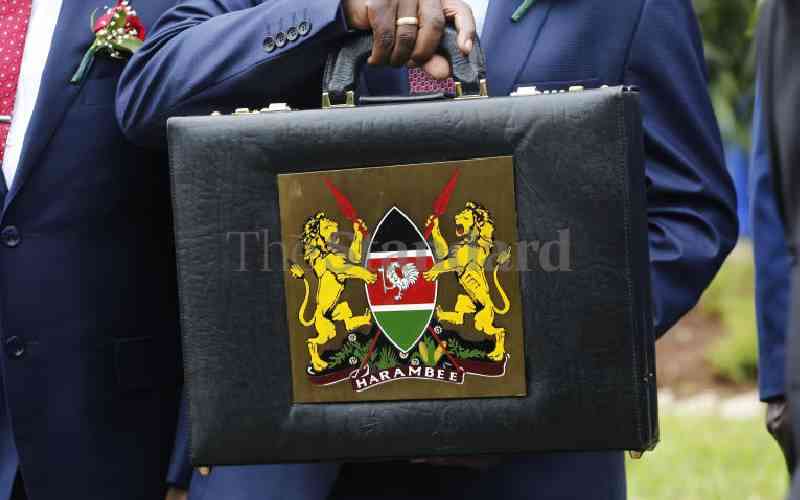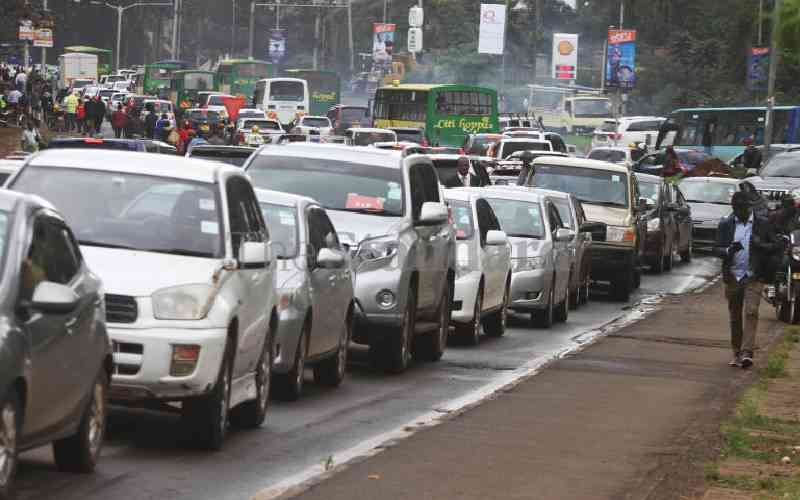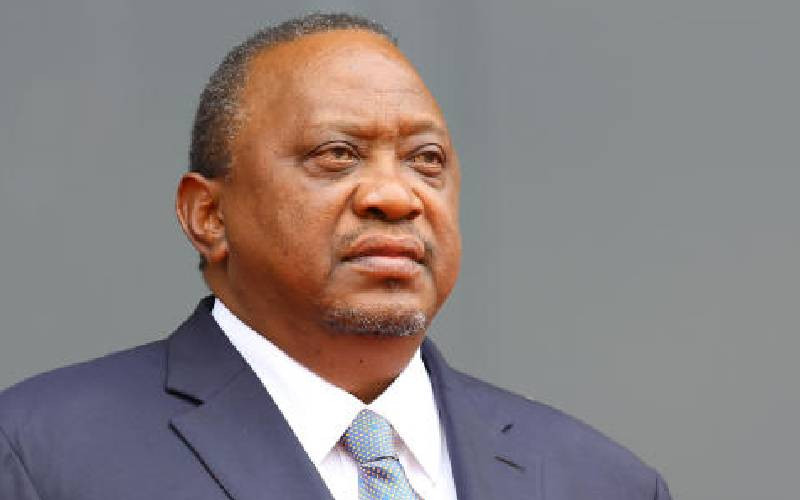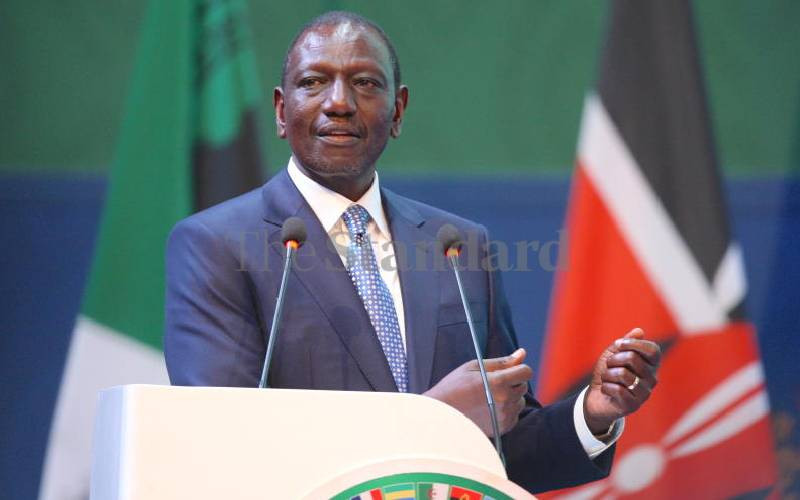 |
KWS officers inspect impounded ivory. Inset: Former KWS Director Richard Leakey.
[PICTURE: FILE/STANDARD] |
By Paul Wafula and Kipchumba Some
KENYA: Former Kenya Wildlife Service (KWS) Director Richard Leakey has attributed the recent surge in poaching to widespread corruption even as it emerged Kenya is losing at least one elephant daily.
Dr Leakey agreed with an independent investigation by The Standard On Sunday, showing how wardens and poachers collude with staff at points of entry in a syndicate that is threatening wildlife.
“It is a collusion of corrupt networks. Poachers, police, wardens, politicians, and businessmen, and KRA officials are part of this cartel threatening to wipe out this heritage,” he said.
Asked whether additional resources would make a difference, the former top official at the State corporation said: “Today KWS has more resources than it has ever had in its history. It is not about more vehicles, guns or money; it is about significant incompetence and lack of vision by those in charge today.”
But Leakey acknowledged poaching had significantly dropped from the time he was in charge of KWS, but maintained KWS must step up the game.
“When I was in charge we used to lose six elephants daily, today it is six in a week. But that is no reason to believe things are any better when you consider the falling number of elephants,” he said.
Last week, our investigations unearthed how a web of criminals, which has infiltrated Kenya’s ports of entry, pay between Sh50,000 and Sh100,000 to a network of mostly junior staff at the airport to smuggle smaller pieces of animal trophies sourced from the country and her neighbours.
The investigations have also established that the dealers conceal their identities through layers of non-existent companies using fake IDs to mask their operation.
The traders seem to be getting more sophisticated and adapting faster than the measures put in place to cut them loose. Most shipments get out as unaccompanied luggage in quantities of between two to 30kgs. Others, bought off the streets of Congo, leave as necklaces, souvenirs, among other jewellery tucked away in handbags.
The thousands of poachers arrested annually are just a pawn in the game, earning the least of the proceeds of the illegal trade that ends up in several pockets along the ivory trade “food chain” from ground handlers, airport staff to the real masterminds.
Ivory hunters
Unless stopped, the ivory hunters are set to make Kenya join the ranks of most countries in northern Africa responsible for wiping out elephants.
An undisclosed number of employees at Kenya’s two biggest airports are on the payroll of connected criminals that have deep links in relevant Government agencies to make Kenya one of the most preferred transit points for smuggling ivory to Asian countries.?
To pull off a successful operation, sources familiar with the trade, said players need to outwit or compromise customs officials, the Kenya police, Interpol, and either the Kenya Airports Authority, or the Kenya Ports Authority depending on the exit route.
Stay informed. Subscribe to our newsletter
“There is always a collision between airline staff, KRA officials, KWS staff stationed at the airport, and police. The collision doesn’t involve the big guys at the airport but junior employees like the grounds men and handling guys who are given about Sh50,000 to stamp the luggage and look away,” a source based at the airport said.
“The luggage can be cleared as anything ranging from computers but this does not happen unless all these agencies have cooperated. They are only caught when someone along the line is not roped in or an unexpected raid is conducted,” the source added.
The investigation also found China, which has become one of Kenya’s largest trade partners under the Kibaki administration, is indirectly funding the thriving ivory trade by providing a ready market for the trophies.
On average, the price of ivory has increased from about $22 (Sh1,870) per kilo to between $750 and $7000 (Sh595,000) in China depending on the quality, a windfall profit by any standards. The revelation is set to renew pressure on China, which has emerged over the years as a major market for ivory, to shut down its legal domestic trade so that smugglers cannot use it to launder illegal ivory. This revelation makes a joke of the 1989 global ban on trade in elephant tusks.
“The trade is more rampant than what it is actually being reported since only the big seizures are announced. We did a routine crackdown last year and we found that about 100 kilos of ivory is smuggled through the airport every day in hand bags, necklaces and so on,” the airport official said.
Early last week, a court joined the voices blaming the rise of illegal ivory trade on lack of stringent punishment for offenders.
Weak laws could not discourage the lucrative trade, Makadara senior principal magistrate Tom Okello said on Tuesday.
Mr Okello spoke as he fined four Chinese traders Sh120,000 for being in illegal possession of ivory ornaments worth Sh4.9 million at the Jomo Kenyatta International Airport on Sunday.
“The missing link you are looking for starts at law enforcement at the whole chain from our national parks, Interpol and the profiling of international organised criminal syndicates, intelligence capability.?However, your question seems to single out the end process of a complex chain in the global illegal Ivory trade by organised crime,” Kenya Airports Auhtority Corporate Affairs Manager Dominic Ngigi told The standard On Sunday.
 The Standard Group Plc is a
multi-media organization with investments in media platforms spanning newspaper
print operations, television, radio broadcasting, digital and online services. The
Standard Group is recognized as a leading multi-media house in Kenya with a key
influence in matters of national and international interest.
The Standard Group Plc is a
multi-media organization with investments in media platforms spanning newspaper
print operations, television, radio broadcasting, digital and online services. The
Standard Group is recognized as a leading multi-media house in Kenya with a key
influence in matters of national and international interest.
 The Standard Group Plc is a
multi-media organization with investments in media platforms spanning newspaper
print operations, television, radio broadcasting, digital and online services. The
Standard Group is recognized as a leading multi-media house in Kenya with a key
influence in matters of national and international interest.
The Standard Group Plc is a
multi-media organization with investments in media platforms spanning newspaper
print operations, television, radio broadcasting, digital and online services. The
Standard Group is recognized as a leading multi-media house in Kenya with a key
influence in matters of national and international interest.


